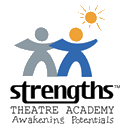11 Major Principles of Health Education
Health Education in simpler words means educating people about health. It is a profession of educating people about their environmental, physical, social, emotional, intellectual, spiritual as well as sexual, and reproductive health. In the Oxford English Dictionary health is defined as “the state of being free from sickness, injury, disease, bodily conditions; something indicating good bodily condition.” Health Education is an experience designed to help individuals to improve their health by providing them with adequate knowledge and boosting their morals. These major principles of Health Education will help us understand health education better.
Here are some basic principles of Health Education:
1. Interest: As the objective of health education is to create awareness among the people, to do so it should be in an interesting manner as people tend to pay attention and listen to the things they are interested in. They follow things that interest them.
2. Participation: People should participate in health programs to gain a better understanding of health education. Health educators should encourage people and help them identify and solve their health problems. This will lead to an increase in participation and people will acquire more knowledge about health education.
3. Known to Unknown: To help people understand the concept start with simple terms that the audience understands and then go to the higher terms while explaining them to the audience in a simpler manner to help them engage and understand the concepts.
4. Re-enforcement: While educating people, make sure you use simpler words and sometimes repeat the main lines which are important, at the end make sure to take feedback, solve doubts if any, and make sure your audience is understanding the concepts you are explaining.
5. Motivation: Create engaging content and exercises to help people learn and motivate them into understanding the importance of health Education. Find ways of constantly motivating yourself and your audience to help them learn better.
6. Communication: Verbal as well as non verbal communication must be used to communicate properly, Health Educator must be aware of the language barriers of the audience, and provide them knowledge about the subject in their language, health Educator should also understand the importance of nonverbal communication, use of body language and gesture should be used appropriately to make people understand.
7. Need-Based: Health Education should be need-based, it should be purposeful, and should specifically focus on the relevant problems and the solution. It should be goal-oriented and to the point.
8. Change behavior: Health Education somewhere depends on your changing behavior, it helps people in understanding the problems and their approach towards their problems, sometimes the approach needs to change, so the behavior change occurs.
9. Scientific-based knowledge: Health Education must be based on scientific facts and logic, the Educator must provide you with proper scientific knowledge of health Education, therefore the Educator must have the current and scientific knowledge to provide it to others.
10. Rapport Relationship: Health Educator must build a relationship with the clients, as it would help clients to trust the Educator and form a relationship, they have to win the confidence of their clients and help build a relationship to help clients trust them and follow their objectives of health Education.
11. Compare and upgrade knowledge: Educators must take in knowledge that clients have no ideas or information about health Education; they should take into account that people will interpret the information in their ways so they have to communicate appropriately.
There are some components of Health like :
A. Physical health- Being physically healthy means being able to perform tasks without any physical restrictions. It is termed as a disability of the body parts.
B. Psychological Health- Psychological health is associated with mental health and well-being. E.g. in personality development for kids, kids might suffer from psychological health, which might affect their mental health. Thus psychological health is also an important factor of health.
C. Social Health- Social health is associated with society and acceptance and approval of society and its norms and ethics. It also focuses on developing interpersonal relationships with the community.
These principles of Health Education provide us depth knowledge about the concept of health education and how it’s communicated to the people. Health education has a wider and larger impact on society, these principles of health education are followed by many people to stay healthy, Health Education today is available almost everywhere, people have started to take care of their health and follow health educators and lead a happy healthy lifestyle. Being healthy also affects the personality factor, Personality development for kids should be associated with proper healthy lifestyles, as health comes first, and being healthy will determine all other factors of personal development. Thus it’s true what they say, eat healthy, stay healthy.
Originally published at https://strengthstheatre.weebly.com.
